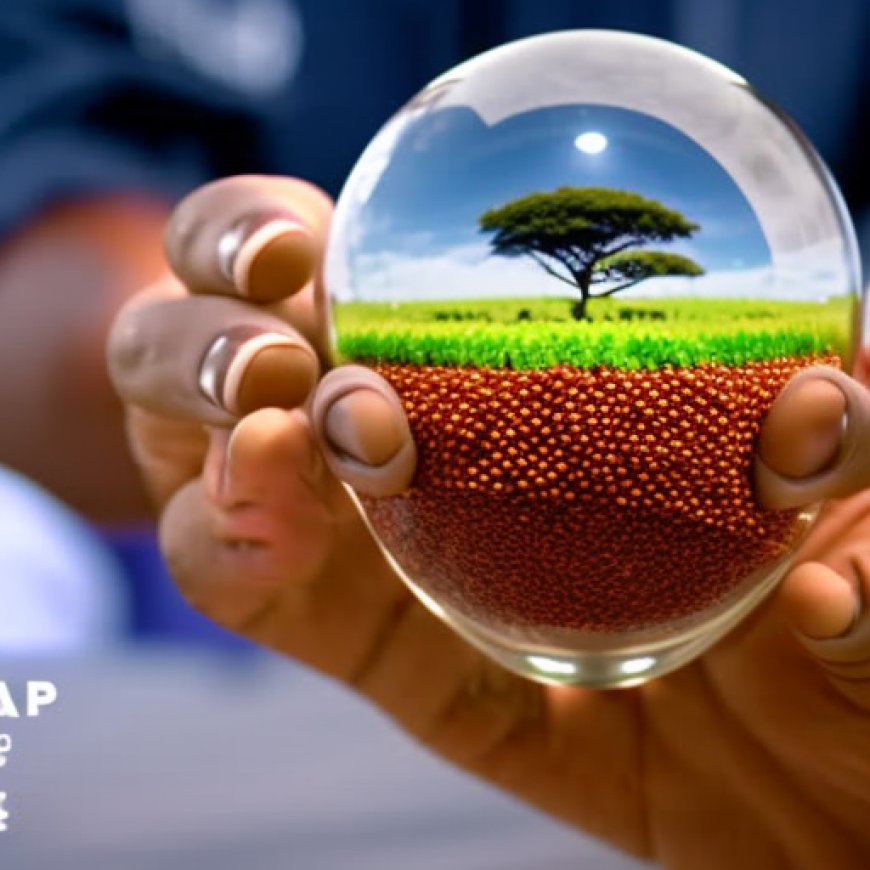Africa Food Systems Summit 2023: African Development Bank leads charge for better food systems
Africa Food Systems Summit 2023 African Development Bank



The 2023 Africa Food Systems Summit Calls for Building Better Food Systems and Promoting Food Sovereignty
The 2023 Africa Food Systems Summit held recently in Dar es Salam has called on African leaders to build better food systems and promote food sovereignty, with youth and women at the centre.
African Development Bank Group Hosts Food Sovereignty and Resilience Event
On the sidelines of Africa’s annual agriculture summit, the African Development Bank Group hosted a food sovereignty and resilience event. This follows the Dakar 2 Food Summit held in Dakar, Senegal early this year.
Discussion on Implementation Progress and Outcomes of Dakar 2 Summit
The session brought together ministers of agriculture from several African countries, including Tanzania, Sierra Leone, the Gambia, and Guinea Bissau, development partners, and private sector operatives. They discussed the implementation progress and outcomes of the Dakar 2 summit in their respective countries.
Unlocking Innovation for Productive, Nutritious, Inclusive, Resilient, and Sustainable Food Systems
Dr. Martin Fregene, the African Development Bank’s Director of Agriculture and Agro-Industrialisation, said: “The 2023 Africa Food Systems Forum is a defining moment for highlighting and unlocking innovation. It allows us to take stock of the political, policy and financial commitments African countries have made to achieve productive, nutritious, inclusive, resilient, and sustainable food systems in the continent.”
Panel Participants
- Tanzania’s agriculture minister, Hussein Mohamed Bashe
- The Gambia’s agriculture minister, Dr Demba Sabally
- Sierra Leone’s agriculture minister, Dr. Henry Musa Kpaka
- Dr. Martien van Nieuwkoop, global director at the Agriculture and Food Global Practice
- Donal Brown, associate vice-president for programme management at the International Fund for Agricultral Development (IFAD)
- Dr Simeon Ehui, regional director for continental Africa at CGIAR and director general of the International Institute of Tropical Agriculture
- Nivedh Shetty, ARISE IIP
- Dr. Victor Oladokun, senior advisor to the African Development President
- Richard Ofori-Mante, acting director of the Bank’s Agricultural Finance and Rural Development Department
Actions Taken by Tanzania to Accelerate Food Production and Systems
Hussein Bashe highlighted key actions that Tanzania has taken to accelerate food production and systems. This included the creation of the Presidential Delivery Council, the establishment of the Agricultural Transformation Office and Agriculture Delivery Unit, and a Build a Better Tomorrow me that promotes and supports youth informing and agriculture.
Hussein said: “Africa has to wash away the shame of not being able to feed itself. For Tanzania, food self-sufficiency is critically important.”
Systemic and Structural Developments in Rice, Cassava, and Livestock Value Chains
The Gambia and Sierra Leone also highlighted systemic and structural developments in rice, cassava, and livestock value chains.
Roles of Private Sector, Science, and Integrated Public Policies
Private sector and development partners from the CGIAR, the World Bank, and IFAD emphasised the critical roles of the private sector, science, integrated public policies, and political will to deliver on Africa’s food security and resilience.
Commitments and Support from Development Partners
In January 2023, the Dakar 2 Africa Food Summit demonstrated African countries’ and development partners’ strong commitment to achieve food security and resilience in Africa. Development partners announced support of more than $30 billion. This includes $10 billion over five years by the African Development Bank, in commitments to support the implementation of country compacts at the summit. Partner commitments since Dakar 2 summit have exceeded $70 billion.
Transforming Knowledge into Actionable Steps
Ofori-Mante urged participants to transform the knowledge shared into actionable steps in their countries, communities, organisations, and institutions.
SDGs, Targets, and Indicators
| SDGs | Targets | Indicators |
|---|---|---|
SDG 2: Zero Hunger |
|
|
SDG 5: Gender Equality |
|
|
SDG 8: Decent Work and Economic Growth |
|
|
SDG 12: Responsible Consumption and Production |
|
|
SDG 17: Partnerships for the Goals |
|
|
Behold! This splendid article springs forth from the wellspring of knowledge, shaped by a wondrous proprietary AI technology that delved into a vast ocean of data, illuminating the path towards the Sustainable Development Goals. Remember that all rights are reserved by SDG Investors LLC, empowering us to champion progress together.
Source: afdb.org

Join us, as fellow seekers of change, on a transformative journey at https://sdgtalks.ai/welcome, where you can become a member and actively contribute to shaping a brighter future.







